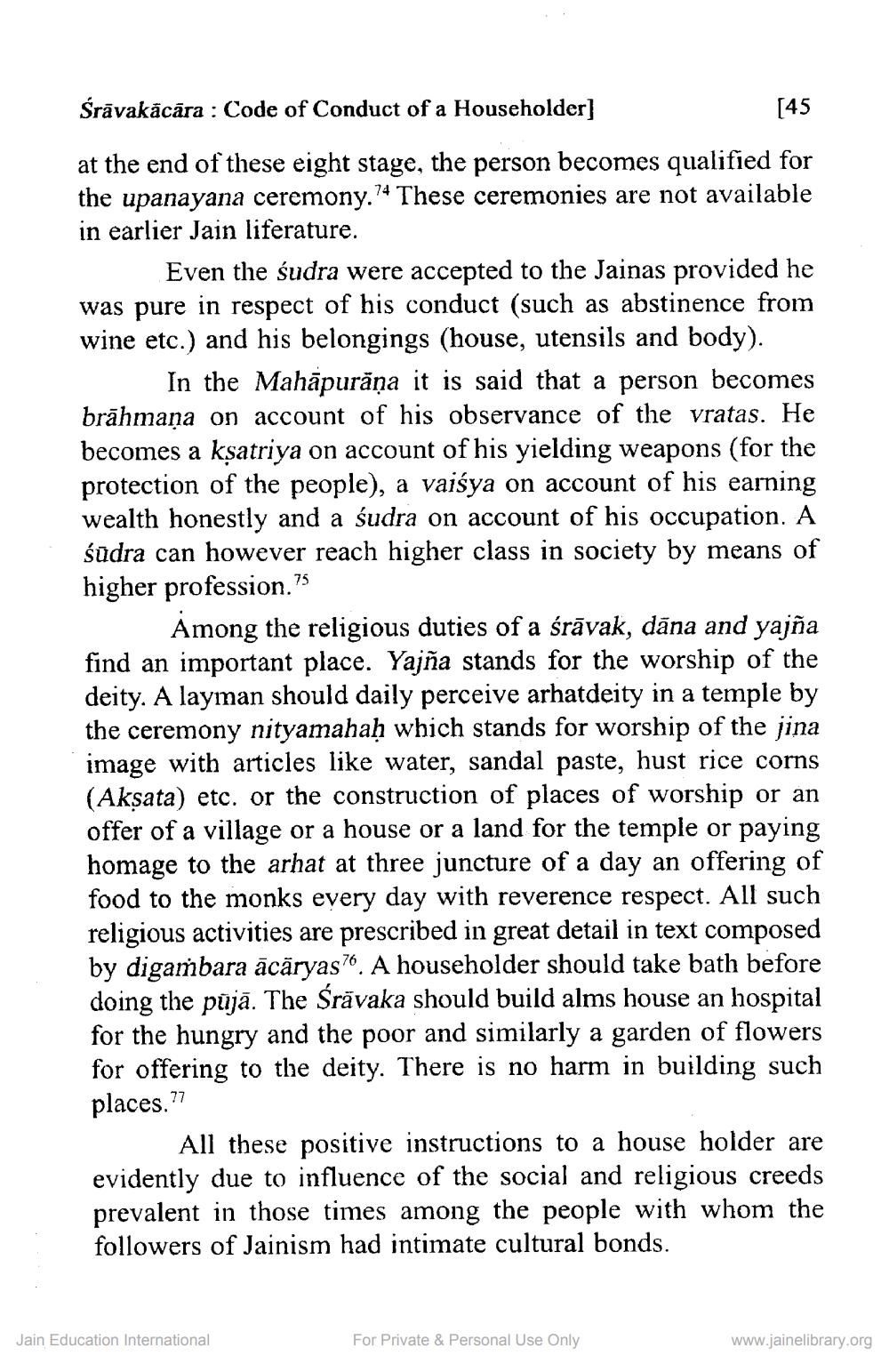________________
Śrāvakācāra : Code of Conduct of a Householder]
[45
at the end of these eight stage, the person becomes qualified for the upanayana ceremony.74 These ceremonies are not available in earlier Jain liferature.
Even the sudra were accepted to the Jainas provided he was pure in respect of his conduct (such as abstinence from wine etc.) and his belongings (house, utensils and body).
In the Mahāpurāņa it is said that a person becomes brāhmaṇa on account of his observance of the vratas. He becomes a ksatriya on account of his yielding weapons (for the protection of the people), a vaisya on account of his earning wealth honestly and a śudra on account of his occupation. A śūdra can however reach higher class in society by means of higher profession.75
Among the religious duties of a śrāvak, dāna and yajña find an important place. Yajña stands for the worship of the deity. A layman should daily perceive arhatdeity in a temple by the ceremony nityamahaḥ which stands for worship of the jina image with articles like water, sandal paste, hust rice corns (Akşata) etc. or the construction of places of worship or an offer of a village or a house or a land for the temple or paying homage to the arhat at three juncture of a day an offering of food to the monks every day with reverence respect. All such religious activities are prescribed in great detail in text composed by digambara ācāryas76. A householder should take bath before doing the pūjā. The Srävaka should build alms house an hospital for the hungry and the poor and similarly a garden of flowers for offering to the deity. There is no harm in building such
places.??
All these positive instructions to a house holder are evidently due to influence of the social and religious creeds prevalent in those times among the people with whom the followers of Jainism had intimate cultural bonds.
Jain Education International
For Private & Personal Use Only
www.jainelibrary.org




